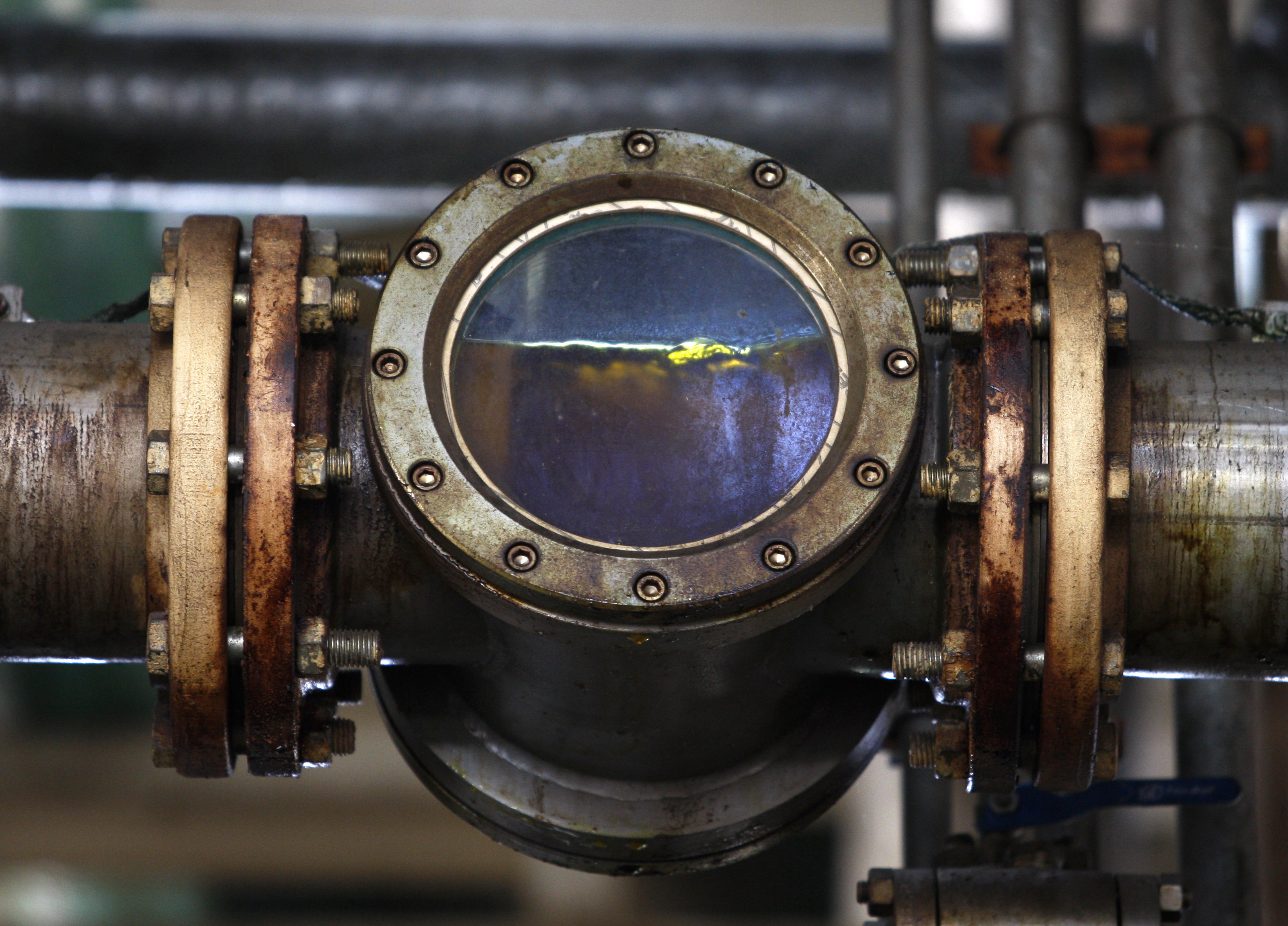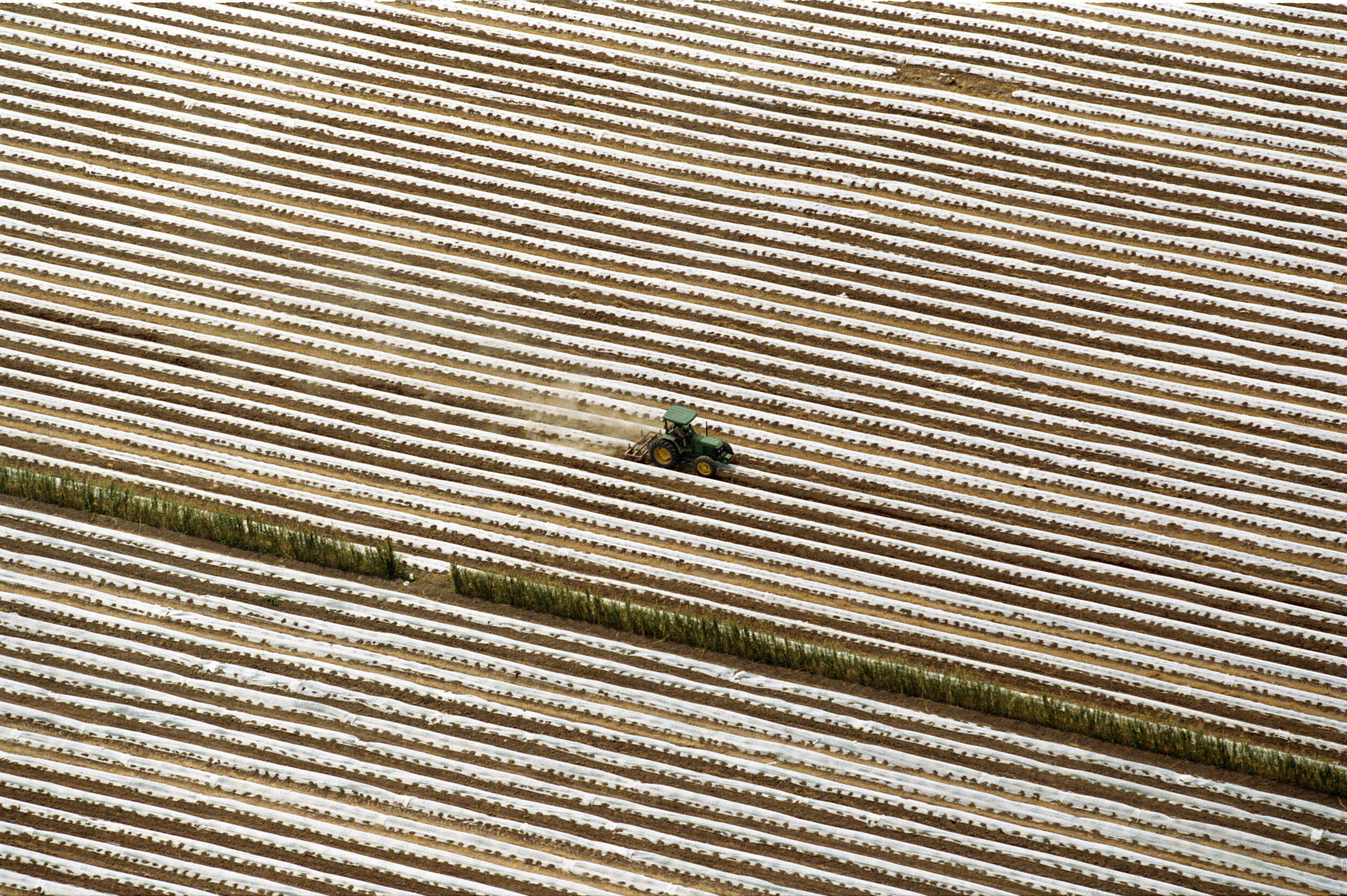Biofuel debate heats up

Debate continues to rage about whether we should be using agricultural land to grow crops for biofuels. A Swiss study recently joined a chorus of claims that crop-produced biofuels are actually less “green” than they claim to be.
Less than five per cent of all fuels used every year in Switzerland are biofuels. Nonetheless, these so-called ‘green fuels’ are of huge interest to Swiss researchers.
In September the Swiss Federal Laboratories for Materials Science and Technology (Empa) released the results of an extensive new study on the full life-cycle impact of biofuels, which found that few biofuels were more environmentally friendly than petrol.
Rainer Zah, head of the Empa study, explained to swissinfo.ch that “if you are producing biofuels on productive land, you are usually inducing higher environmental impacts then those caused by fossil fuels”.
This alarming message comes as the industry continues to grow strongly. According to the Global Renewable Fuels Alliance (GRFA), the sector generated $374 billion (SFr346 billion) in turnover in 2010, which should rise to $679 billion in 2020.
The GRFA said between 2000 and 2010 global production of biodiesel exploded by a factor of 22, while bioethanol tripled over the same period.
According to certain experts, such growth would not have been possible without state aid, however.
“If biofuels were competitive with fossil fuels without government subsidies, the interaction of market forces would result in an optimal distribution of feedstock between food uses and bioenergy uses,” said Ivetta Gerasimchuk, a specialist at the Geneva-based International Institute for Sustainable Development.
“But the market is heavily distorted now by tax breaks and other forms of government support to the biofuels industry.”
Nestlé bites
Attacks against biofuels have been coming from all sides recently. Nestlé President Peter Brabeck has been one of the fiercest critics, blaming the growing of crops for biofuels for high food prices.
“The time of cheap food prices is over,” he told the BBC in July. Nestlé’s corporate spokesman Philippe Aeschlimann denied Brabeck’s position was driven by the group’s financial concerns.
“Our involvement in the discussion is not because of any potential impact on our business, but because of the social implication of these policies,” he told swissinfo.ch.
West African dreams
Meanwhile, a number of Swiss firms are currently involved in biofuel production around the world.
These include Geneva-based Addax Bioenergy, which is set to start a high-profile sugarcane bioethanol project in Malal Mara, Sierra Leone in 2013. Investing $350 million, it hopes to create over 2,000 jobs when the project is fully operational.
The Swiss non-governmental organisation Bread for All carried out a detailed study of this project in November 2011. It concluded that the project benefitted from numerous tax exemptions, had a negative impact on the environment and made intensive use of water during dry periods. The NGO also said it was based on illegal accords drawn up with the local authorities.
According to Yvan Maillard Ardenti, programme officer with Bread for All, the land lease agreement that Addax Bioenergy signed is for 50 years, extendable to 71, which will deprive various generations of access to their land.
“Addax could never do in Switzerland what it is doing in Sierra Leone,” he declared. “This is because landowner rights are much better secured in Switzerland. In Switzerland, Addax would have to sign hundreds of agreements with hundreds of individual landowners, instead of just three land lease agreements with local authorities in Sierra Leone.”
Addax Bioenergy managing director Nikolai Germann dismissed this viewpoint as well as the NGO’s overall conclusions.
“We are monitored by independent consultants on behalf of the development banks which took three years to assess the sustainability of the project,” explained Germann.
“We can confidently inform you that Addax’ project has improved food security through its successful farmer development programme which is now the largest privately-run rice production operation in Sierra Leone.
Second generation
As the sector expands, there is uncertainty over which particular direction it may take in the future.
Empa researcher Zah felt greater efforts should go into the promotion of second-generation biofuels that can be manufactured from different biomass and not just the sugars and vegetable oils found in arable crops.
But Zah admitted that these were still very expensive and had not been sufficiently developed into end products.
Switzerland has always been clear that its agricultural land should be used first and foremost for growing crops.
Meanwhile, in a major policy shift Brussels says it now plans to limit crop-based biofuels to 5 per cent of consumption, as part of a goal to draw 10 per cent of transport fuel from renewable sources, mainly biodiesel and bioethanol. The European Commission proposed on October 17 to also move support to more advanced fuels like second-generation biofuels that it says do not displace food.
This issue remains on the agenda of the G20 and will again be discussed in 2013 as it seeks new directions for the industry.
An emergency meeting of G20 agriculture ministers took place on October 16 to consider a coordinated response to the sharp spike in food prices following the US drought. France is reportedly keen to put the issue of global biofuels production at the centre of discussions.
The United States is the leading producer of biofuels (43%), followed by Brazil (27%), Germany (5%), France (5%), China (3%), Argentina (2%), Spain (2%), Canada (2%), Italy (1%), Thailand (1%), Belgium (1%), Colombia (1%) and others (7%). Switzerland generates (0.011%) of total annual production.
The main Swiss firms involved in the sector include EcoEnergie Etoy, Humbel Biodiesel, BioPower Fardin and Addax Bioenergy.
Since July 2008, biofuels such as biogas, bioethanol und biodiesel have been exempt from the petroleum tax in Switzerland. They are required to meet minimum ecological standards and demonstrate a positive ecological balance overall.
In September the Swiss government announced that it would no longer pay out subsidies for biofuels to encourage their wider usage as they only make a small contribution to Switzerland’s long-term energy and climate policy objectives. It said Switzerland offered limited potential for the production of second-generation biofuels, and added that certain ecological and social aspects were open to criticism.
According to a recent study by the Swiss Federal Laboratories for Materials Science and Technology (Empa), most biofuels are not really “green” and few are more environmentally friendly than petrol.
If found that most biofuels “just deflect the environmental impact: fewer greenhouse gases, thus more growth-related pollution for land used for agriculture”.
Biogas produced from garbage was seen as a positive example, placing less than half the burden that petrol places on the environment. Biofuels with an ethanol base tend to perform more ecologically than those with an oil base, the study found. The result depends to a great extent on the process and technology used.
Biofuels are mainly produced from maize, rapeseed, soy, beetroot and sugar cane. It takes 200 kilograms of maize and 4,000 litres of water to produce one litre of ethanol.
(Translated from Spanish by Simon Bradley)

In compliance with the JTI standards
More: SWI swissinfo.ch certified by the Journalism Trust Initiative














You can find an overview of ongoing debates with our journalists here . Please join us!
If you want to start a conversation about a topic raised in this article or want to report factual errors, email us at english@swissinfo.ch.